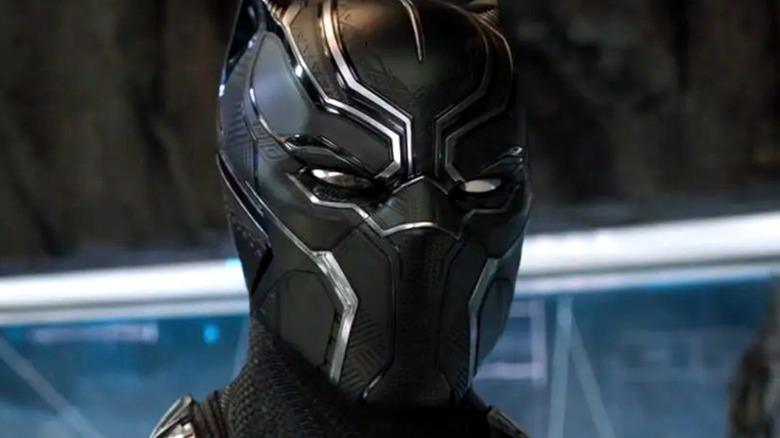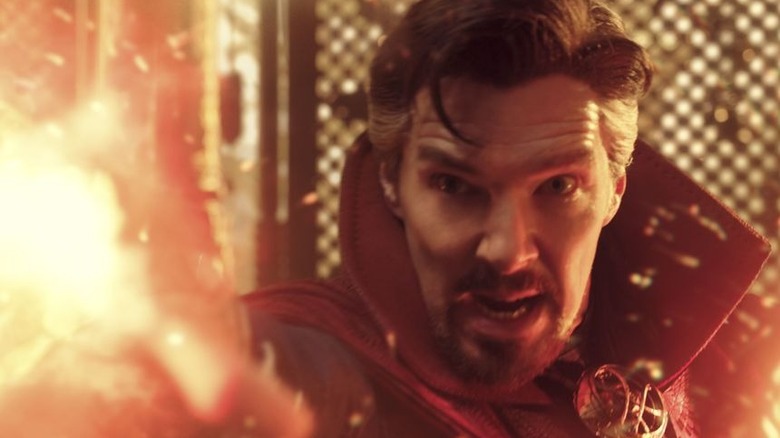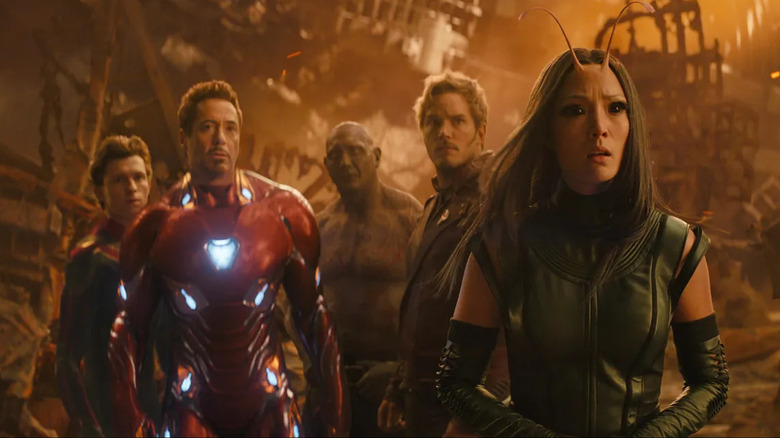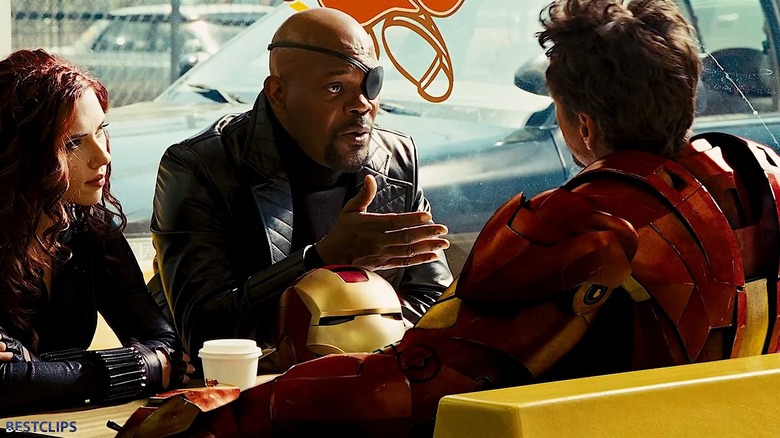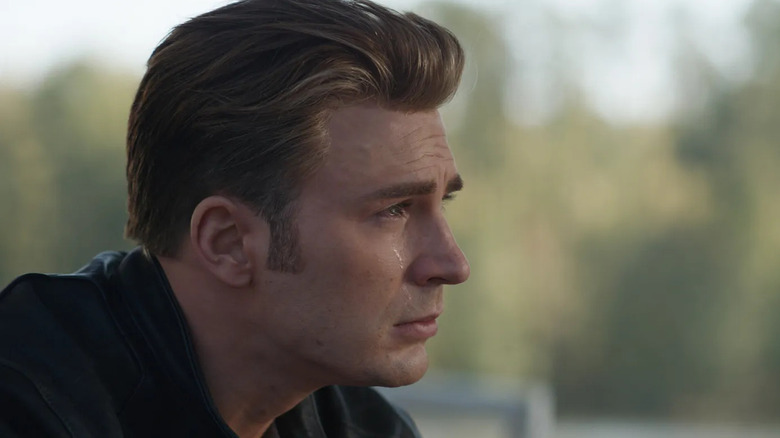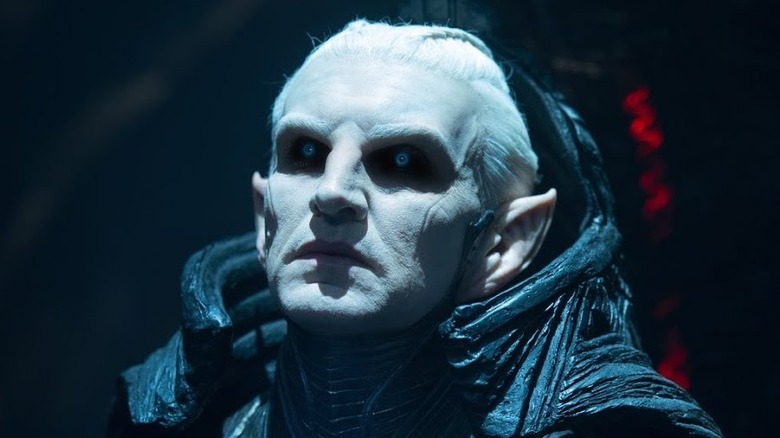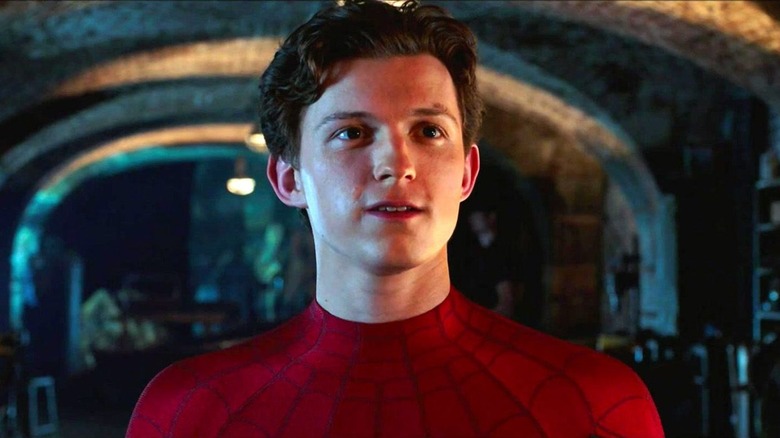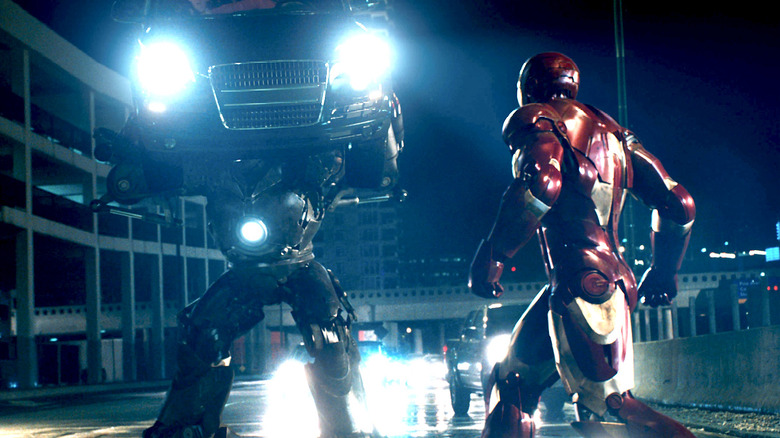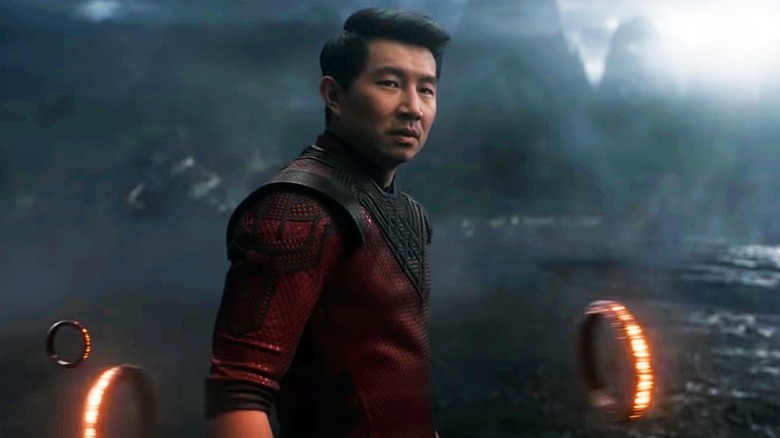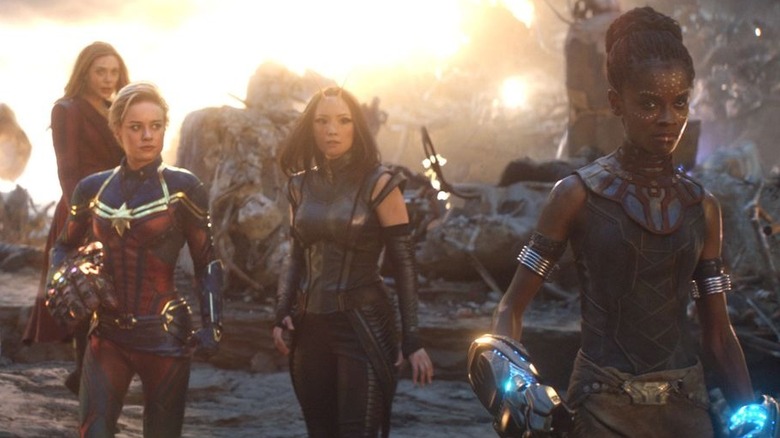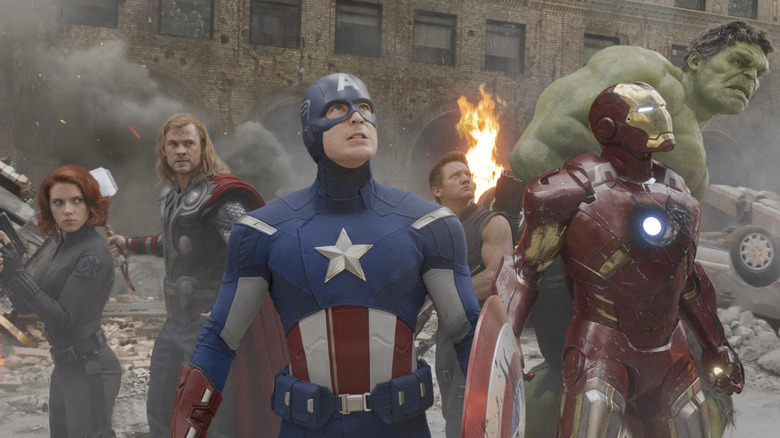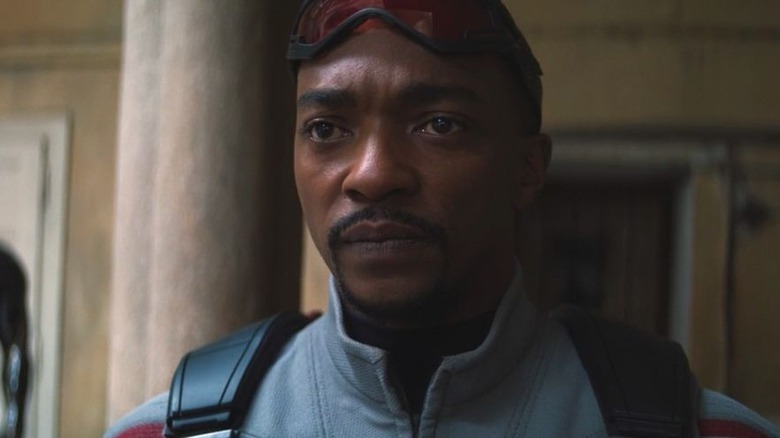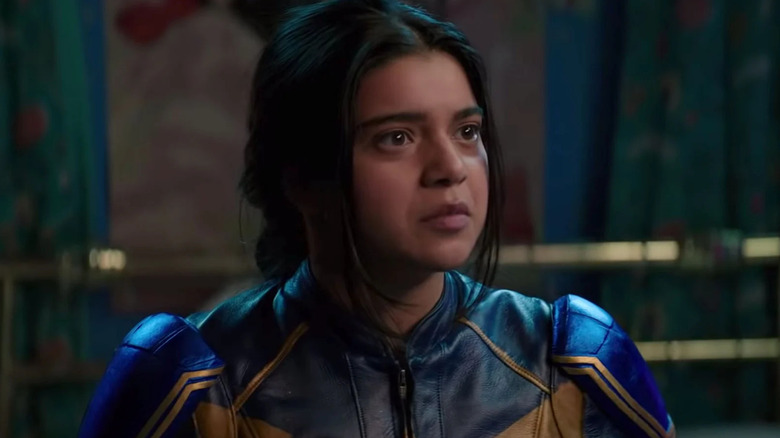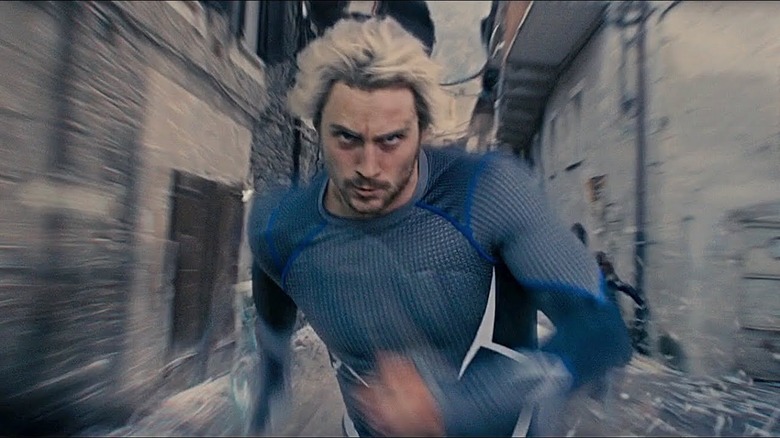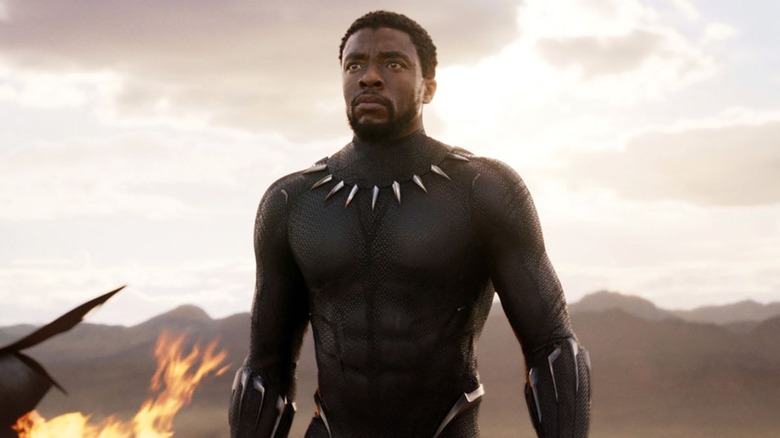The Marvel Cinematic Universe: The 7 Best And 7 Worst Things
There's no greater entertainment juggernaut today than the Marvel Cinematic Universe, a web of interconnected franchises that dominate television and movie screens. Launched in 2008 with "Iron Man," few could have predicted the behemoth it's become, with more than 30 feature films and almost a dozen TV series already aired or in production. Nearly every project has been a towering success, both with critics and audiences, with no less than 10 films pulling in more than a billion dollars at the box office.
With throngs of fans around the world and new releases coming to theaters and streaming every month, there's seemingly no stopping the MCU. It's permeated pop culture for more than a decade, and Marvel did it thanks to their compelling cast of characters, engrossing drama, and world-class action. But the MCU isn't without its flaws either, and many armchair critics have picked apart its weaknesses for years, with even the most ardent Marvel fans admitting a few cracks in the seemingly impenetrable armor.
So sit back, grab your popcorn, and get ready for a deep dive into everything Marvel, because we've poked around and found out just what makes the Marvel Cinematic Universe great ... and what it's gotten wrong. These are the best and worst things about the MCU.
Worst: They're too formulaic
One charge that's been levied against the MCU has been the formulaic nature of many of the movies in its catalog. There's definitely merit to the criticism, as many MCU films have followed a lot of the same plot beats, and even some of the same details, with eerily similar characters.
While the nuts and bolts of the so-called "Marvel formula" have been discussed ad nauseam, we'll cover the basics: most Marvel movies are skewed towards being action-comedies, something that definitely wasn't the case for superhero fare before the MCU. While some superhero movies had their lighter moments, the MCU films lean into the laughs, which appeals to a broader audience but sometimes frustrates longtime fans. Meanwhile, the hero's redemption arc and empowering origin story can be seen repeatedly with Tony Stark, Doctor Strange, Thor, the Guardians of the Galaxy, and even Loki, making every movie and show feel like a slightly different version of the same story.
Much of this can be attributed to the comics on which they're based, but also on the overwhelming and unexpected success of the first "Iron Man" movie. The studio clearly saw what audiences responded to, and followed that blueprint. Given how successful the MCU has been, perhaps it was the right move, as disappointing as it can be at times.
Best: It's all connected
From the very beginning of the MCU, one of its biggest selling points was that it would connect different superhero franchises into one shared universe, just like the comics. The fact that nobody had ever tried anything like this before is truly mind-boggling. Crossover films hold obvious and enormous appeal, and comics are famous for their team-ups.
The shared universe goes far beyond the crossover "Avengers" films, as trailblazing and remarkable as that unprecedented merging of otherwise unrelated films was. But it's also how events bleed over between films, with status quo shakeups rippling across different titles and carrying over broad elements. While each film and show can be enjoyed on their own, the MCU's unparalleled connectivity — often sharing supporting characters — encourages audiences to see them all, and enriches the moviegoing experience if they do. Getting to see mini-meetups like those with the Hulk in "Thor: Ragnarok" and Daredevil in "Spider-Man: No Way Home" is the cherry on top.
In fact, so groundbreaking and successful was this level of shared universe that it changed Hollywood forever. Suddenly every other studio tried their hand at doing the same thing ... to mixed results. Most failed to even get off the ground, and the ones that did weren't nearly as deftly executed as the MCU, which has helped keep Marvel unique among its peers.
Worst: Too many world-building set-ups
It's true that one of the most attractive things about the MCU is its shared universe. Unfortunately, there are also many times where the vast world-building distracts from the story, or worse, makes the main story feel like an afterthought. Sometimes it feels as if Marvel is more focused on setting up the next big movie than just making the one you're watching as good as it can be.
The first time this was apparent was "Iron Man 2," because while Nick Fury had been well-used in a post-credits tag in the first film, he and Black Widow were suddenly major supporting characters in a movie that didn't need them. Black Widow in particular had little to do beyond looking cool and reminding the audience that "The Avengers" was coming. Likewise, "Avengers: Age of Ultron" included the villainous Klaue, vibranium, and a mention of Wakanda, which seemed out of place and served only to bog down an already overstuffed plot with a tease for "Black Panther."
It's no coincidence that the movies that are most guilty of this are some of the ones people point to as the most disappointing installments in the MCU. That's probably because when writers and producers feel more concerned with what's next on the horizon, it's easy to lose sight of what's right in front of them.
Best: Character-driven stories
Sometimes the MCU's formulaic nature has its upsides. Case in point is its focus on character above all else. This was clearly identified early on by Marvel brass as an integral component to quality storytelling. It was something often lacking in early Marvel movies, which sometimes favored big-budget action over pathos and drama. It's one of the many elements in the MCU that has helped it rise above its competition, with its earliest entries being more about the men and women under the mask than the superhero spectacle.
From "Iron Man" to "Captain America" and beyond, movies in the Marvel Cinematic Universe have put the personal struggles of its characters front and center. The stories have been about far more than a hero clashing with a tyrannical villain, but about a character's journey to redemption, their battle to overcome a personal struggle, or the lessons they learn about themselves as they defeat a nefarious foe.
Tony Stark learned humility and gained a family, Steve Rogers was forced to come to terms with the life he'd lost, and Sam Wilson had to reluctantly accept his role as a leader, while T'Challa dealt with the loss of his father and his sudden elevation to king. These are the same kinds of stories that you'd find in the best awards-worthy dramas, and Marvel's ability to put them at the heart of a bombastic, colorful superhero movie has helped elevate them to new heights.
Worst: Strong actors wasted on weak villains
Though one of the biggest strengths of the MCU is its focus on creating fully realized, three-dimensional heroes, one of its most surprising weaknesses is its villains. Starting with Tim Roth's first turn as The Abomination in "The Incredible Hulk," too many of Marvel's best heroes have had to face off against lackluster foes, enemies with weak motivations, paper-thin characterization, and unconvincing performances that often border on farce. Whether they're revenge-fueled madmen like Ronan in "Guardians of the Galaxy" or Ultron in the "Avengers" sequel — or power-mad maniacs like the Red Skull or Aldrich Killian — the focus on making the hero the best part of the film has often come at the expense of the villain, who too often leave much to be desired.
But what makes this sin so much worse is that the poor execution of many villains has completely wasted the incredible talent of some top-notch stars. This includes "Doctor Who" alum Christopher Eccleston ominously shouting cliched dialog as Malekith in "Thor: The Dark World," Hugo Weaving hamming it up in "Captain America: The First Avenger," and the great Mads Mikkelson having little to do but glare and wave his hands around as the forgettable Kaecilius in "Doctor Strange." Ultimately, too many MCU villains feel utterly interchangeable, seemingly inserted as an afterthought when the writers simply needed someone for the hero to fight.
Best: The casting is pitch perfect
Before the MCU, there had long been debates over the best and worst castings of superheroes. It was all too common for major comic book movies to wind up with a disappointing actor as your favorite hero, or a talented star woefully miscast in the wrong part. But if there's one thing that the MCU has never failed to get right, it's the casting of their biggest stars.
Since the day that "Iron Man" arrived and proved the naysayers wrong about troubled star Robert Downey Jr., the MCU has been populated by actors who have become so identified with their characters that fans have struggled to imagine anyone else in their roles. Doubters of Chris Evans as Captain America quickly came around, and now that he's seemingly retired, audiences are begging for him to return for "Avengers: Secret Wars." Meanwhile, Tom Holland had the impossible task of following two fan favorites as Spider-Man, but quickly became the best Peter Parker yet.
It helps of course that the MCU's success has given Marvel the ability to attract the biggest and best actors in Hollywood. This has allowed the likes of well-respected stars like Oscar Isaac, Benedict Cumberbatch, Brie Larson, Tony Leung, and Josh Brolin to join the ever-expanding MCU, and add their considerable talents to the franchise. But despite countless opportunities to get things wrong, Marvel's casting department just keeps scoring home runs and putting just the right person into every role.
Worst: Disappointing final acts
While Marvel reinvented the superhero movie, it also launched a trend of disappointing finales. Sure, some of the films have closed out their stories with massive set pieces and FX-laden extravaganzas, but action doesn't always equal an emotionally fulfilling conclusion. From the first "Iron Man" film, where the big climax amounted to a brief robot fistfight and a cliched laser shot into the sky, the endings of even the best MCU movies often just fizzle out.
Admittedly, some of the weakness of the films' finales can be blamed on just how good the first half of the movies are, making it challenging to satisfyingly wrap things up in a way that meets sky-high expectations. Still, combined with the formulaic nature of the proceedings, and the weak villains involved, many MCU films start out fresh and inventive but conclude with stale or stereotypical climaxes.
Sure, they usually look great, but sometimes it feels like they've been written into a corner and just use a lot of special effects to get out of it, hoping that nobody notices. Thankfully, Marvel's two biggest films to date — "Avengers: Infinity War" and "Avengers: Endgame" — were both capped off with a rewarding final act that tied up the story in convincing fashion and gave us all the epic action we craved.
Best: The MCU digs deep into Marvel's pantheon
At the outset, Marvel Studios was hamstrung by licensing deals that saw their biggest and most popular characters outsourced to rival studios: The X-Men and Fantastic Four were with Fox, the Hulk was at Universal, and Spider-Man was at Sony. As a result, Marvel was forced to focus its attention on the likes of Iron Man, Thor, Captain America, and others. While some of these were recognizable names, none were considered A-list superheroes, and the MCU soon turned to even lesser-known names like Doctor Strange, Black Panther, and Captain Marvel.
But rather than grudgingly use C-list players to lead new franchises, the MCU embraced them and was never afraid to pluck characters out of obscurity. Who could have imagined that Ant-Man, Shang-Chi, the Eternals, and even the Guardians of the Galaxy — characters only known to diehard Marvelites — would lead films of their own? Disney+ went even further, giving the spotlight to the likes of Werewolf by Night, Ms. Marvel, and Moon Knight. By contrast, it's only fairly recently that DC movies have gone beyond Batman and Superman after decades of staying mired in those wells.
Sure, getting the most famous heroes up on the big screen is great. But Marvel's ability to successfully bring obscure characters to the mainstream has brought an unparalleled variety to the MCU that fans love.
Worst: Oversaturation
Marvel Studios' initial output was strong and steady, generally averaging two films per year. This seemed to work for Marvel and for audiences, who had time to digest the latest movie before hotly anticipating each new release. But in 2017 Marvel moved to three pictures a year, and by 2021 it was four. That same year, Disney+ added multiple new series that expanded the MCU canon.
Launched just as the slate of movies ballooned, the MCU on Disney+ was even more prolific than it was on the big screen. In that first year there were no less than five series, for a total of 36 episodes on top of the four movies. Though Marvel has done a good job making each film and series enjoyable on its own, the crossover of characters and storylines could be hard to keep up with if you weren't watching everything.
Even for serious fans, this sea of new movies and shows each year could feel like a tidal wave. This doesn't even begin to touch on the problems faced by new fans who can find themselves with an avalanche of back catalog to sift through to get up to date. That said, this is one flaw that Marvel may be aware of: in late 2022, former Disney CEO Bob Iger returned to his old role, and recent rumors – not verified by any official sources — suggest that Marvel may be planning to reshuffle its slate to cut back its output.
Best: It's a comic book on the big screen
Before the advent of the MCU, superhero movies faced an uphill battle to capture the comic book adventure on the big screen. In the early days filmmakers were hampered by the limitations of special effects, unable to showcase the more fantastical elements they might otherwise have wanted to. But as effects improved, superhero movies always seemed leery of being too outlandish, with even the likes of "X-Men" turning the colorful superhero costumes into black leather outfits.
When it came to stories, films like "Fantastic Four" and "Spider-Man 3" seemed afraid to dive into the more outrageous aspects of the comics, often struggling to strike the right balance between adventure, realism, and comic book fun. But along came the MCU, and somehow it's never failed to recreate everything that makes comic books great, from the shared universe of characters to the colorful costumes, outlandish situations, and crazy action. It went headlong into cosmic adventures, introduced a walking tree and a talking raccoon, and the audience has eaten it up.
Perhaps it's thanks to Marvel mastermind Kevin Feige, who seems to truly understand what makes comics great. Or maybe it's the directors he's employed, like James Gunn, Taika Waititi, and the Russo Brothers. Either way, the MCU has faithfully recreated the comic book experience on the big screen, in a way nobody has before.
Worst: The stakes never feel right
A great superhero adventure needs strong stakes. The villain doesn't have to threaten the entire planet, but the audience needs to feel that the hero could lose, so that when they do triumph it's all the more satisfying. But too often the outcome is all but assured, and not just because the heroes rarely die, but because they often feel invulnerable and the danger never seems insurmountable. This is partly the fault of its comic book origins, but it doesn't make it any less frustrating.
It also doesn't help that the threats can sometimes feel nebulous, with the villain's diabolical plot unclear or riddled with plot holes. Then there are stories like "Captain America: Civil War," where the Avengers are disbanded, but the audience knows they'll be back for another sequel soon enough. Sure, enough of the movie is done so well that the lack of real stakes can be overlooked, but all too often MCU films fail to generate the necessary fear that all could be lost at any moment.
In fairness, this is one drawback that helped Marvel achieve its greatest triumph. Knowing that moviegoers would expect a victory — having delivered formulaic plots, weak conclusions, and threats that never had teeth – Marvel shocked audiences with a devastating ending to "Avengers: Infinity War" that left moviegoers' jaws on the floor.
Best: Diverse storytelling
No, we're not talking about the MCU heroes' diversity in race and gender — though that could have also made this list as one of its best features — but its wide array of styles and tones in storytelling. From early on, the MCU, despite its often formulaic approach, has embraced all kinds of different stories, from straight action-adventure to serious drama, from spy thrillers to family comedy. More recently, the franchise has gone even further, and thanks to Disney+, has featured stories with an even more diverse scope.
This includes the light-hearted family comedy "Ms. Marvel," a show clearly aimed at a slightly younger, teenage audience. It also includes "Werewolf by Night," an homage to classic horror movies with a film noir aesthetic, and "Moon Knight," a grim and gritty tale that borders on horror at times. "She-Hulk," meanwhile, is a legal comedy a la "Ally McBeal," while "WandaVision" ran the gamut in tone, with early episodes playing off old sitcom tropes.
In other words, the MCU has been home to far more than the traditional action movie that most superhero stories were prior to "Iron Man." Marvel approaches its stories with a critical eye and treats them like much more than silly little comic adaptations. At the end of the day, the MCU has transformed the genre by focusing more on delivering a diverse array of strong stories rather than just generic sci-fi spectacle.
Worst: It wastes iconic characters
Despite the MCU's penchant for dipping deep into the well of its many characters, it's surprising how many mainstays they've wasted on screen. The most obvious example is Pietro Maximoff — aka Quicksilver — a major player in the comics and stalwart member of the Avengers, who made his one and only appearance in "Avengers: Age of Ultron."
Many fans who'd expected him to be the next major hero were shocked when the film unceremoniously killed him off. It may have felt as if the Marvel bigwigs handed down a mandate to include the character, but the filmmakers didn't know what to do with him, because it felt like a lot of untapped potential. Whatever the true story is for his one-and-done appearance, it's a surprising misuse of such a major character.
Similarly, iconic Doctor Strange villain Baron Mordo has yet to play a meaningful role as a magical baddie, while original Avengers Hank Pym and Janet Van Dyne — the first Ant-Man and the Wasp — were relegated to part-time mentor status. From heavy-hitting villains like Ronan the Accuser and Justin Hammer, to supporting players who had much bigger roles in the comics — like Ned Leeds and Doc Samson — it's truly surprising how many great characters from the books have been utterly wasted in the MCU.
Best: It's crowd-pleasing done right
Before the MCU, Marvel movies had been hit or miss when trying delivering crowd-pleasing moments, whether through cameos, callbacks, or just a scene that made the audience cheer. Maybe filmmakers were hesitant to make their movies reliant on previous efforts, or were worried about going too over-the-top. Other times they tried too hard to copy the comics and fell on their faces. But the MCU has mastered the art of giving the fans what they crave.
It can be tough for moviemakers to chart a course between unnecessary fluff that satisfies a crowd and moments that derail a story too far just to please diehard fans. The MCU does it just right though, owing largely to the talented filmmakers they've chosen. The most notable in this regard to date have been Anthony and Joe Russo, who packed their two "Avengers" movies with plenty of moments to make you cheer, while also making it feel organic and earned. It's a credit to the MCU's careful crafting of long-form storytelling, something that has rarely — if ever — been done at the movies, and it's what makes following the MCU into its second decade so rich and fulfilling.
